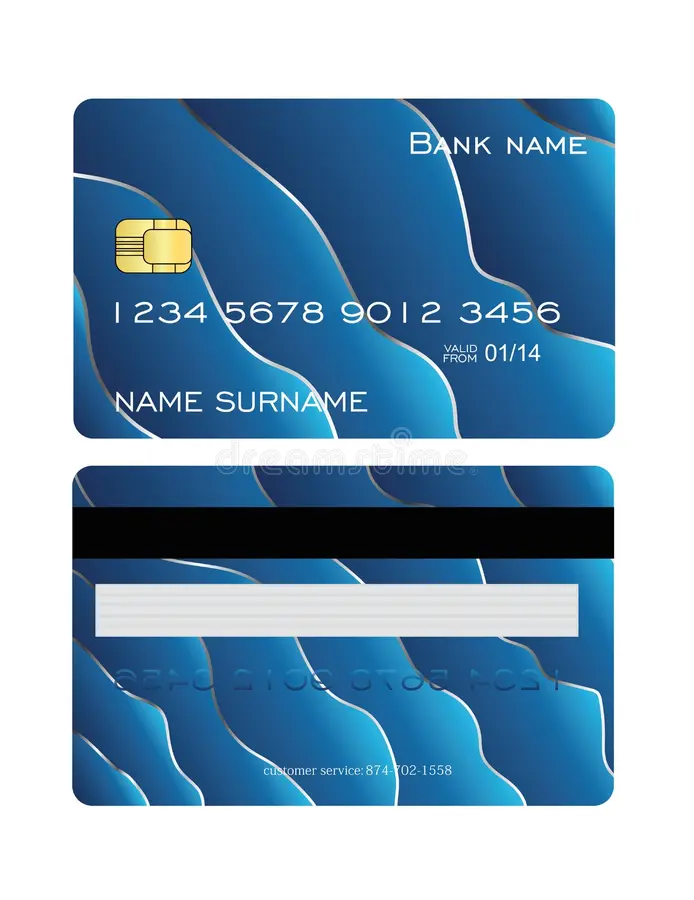Credit cards can be powerful financial tools—but when used carelessly, they can become a source of serious debt and financial stress. For beginners or even experienced users, knowing how to use a credit card wisely can make the difference between financial growth and financial disaster.
This guide will teach you how to use credit cards responsibly, avoid common mistakes, and take advantage of the benefits they offer—without falling into the debt trap.
What Is a Credit Card and How Does It Work?
A credit card is a financial product that allows you to borrow money from a bank or financial institution to pay for goods and services. Instead of deducting funds from your bank account instantly (like a debit card), you’re charged monthly for what you spent.
You receive a credit limit (the maximum you can borrow) and are expected to repay at least the minimum amount every month.
If you don’t pay the full balance, the remaining amount accrues interest—which can be very high, often between 30% to 400% annually depending on your country.
Key Terms to Know
| Term | Meaning |
|---|---|
| Credit Limit | Maximum amount you can borrow using your card |
| Minimum Payment | Smallest amount you must pay monthly to avoid penalties |
| APR (Interest Rate) | Annual Percentage Rate—the cost of borrowing if you don’t pay in full |
| Grace Period | Time during which you can pay without interest (usually 20–30 days) |
| Statement Balance | Total amount spent in a billing cycle |
| Credit Score | A number showing your creditworthiness, impacted by your card usage |
Why Credit Cards Can Be Dangerous
While they’re convenient, credit cards come with risks:
- Easy to overspend
- High interest rates if you carry a balance
- Debt accumulation
- Late fees and penalties
- Negative impact on your credit score if misused
1. Always Pay the Full Balance Every Month
This is the golden rule of credit card use. Paying your full statement balance before the due date ensures:
- You avoid interest charges
- Your credit score stays healthy
- You build a positive payment history
If you only pay the minimum, the remaining balance accrues interest, and you enter the debt cycle.
2. Use Less Than 30% of Your Credit Limit
This is called your credit utilization ratio, and it has a big impact on your credit score.
Example:
If your credit limit is $1,000, try not to spend more than $300. Staying below 30% shows lenders you use credit responsibly.
Ideally, 10% or less is best.
3. Set Automatic Payments
Avoid late payments (and the damage they cause) by automating at least the minimum payment.
Better yet, set it to pay the full balance automatically each month. This way, you’ll never forget a due date.
4. Track Your Spending Weekly
It’s easy to lose track of spending when you’re not paying immediately. Use your bank’s app or a budgeting tool like:
- Mint
- YNAB (You Need a Budget)
- PocketGuard
Check your balance every week, not just at the end of the month.
5. Understand Your Interest Rate and Fees
Before using your card, know:
- Your APR
- Late payment penalties
- Annual fees
- Foreign transaction fees
These vary by card and can seriously affect your costs if you’re not careful.
6. Don’t Use Credit for Emergencies (Unless You Have No Choice)
If you don’t have an emergency fund, a credit card might feel like your only option—but it’s better to save money ahead of time in a high-yield savings account.
Relying on a credit card for emergencies often leads to high-interest debt that’s hard to escape.
7. Avoid Cash Advances
Taking money out of an ATM using your credit card may seem convenient, but it’s one of the worst uses of a credit card:
- High fees
- No grace period (interest starts immediately)
- Higher APR than regular purchases
Only use this option in absolute emergencies—and repay as fast as possible.
8. Take Advantage of Credit Card Benefits
Used wisely, credit cards offer great perks:
- Cashback on purchases
- Travel points and miles
- Purchase protection
- Fraud protection
- Credit score building
Choose a card that fits your lifestyle and make use of its rewards—as long as you’re not overspending to earn them.
9. Use Credit to Build a Strong Credit Score
Your credit card activity directly influences your credit score, which affects your ability to:
- Get approved for loans or mortgages
- Rent an apartment
- Get better interest rates
- Even apply for certain jobs
Paying on time and keeping your usage low builds trust with lenders.
10. If You’re in Debt, Stop Using the Card
If your balance is already high and you can’t pay in full, stop using the card until you get control. Focus on:
- Paying more than the minimum
- Transferring to a 0% APR card if available
- Using the debt avalanche or snowball method
You can still recover—just take consistent steps.
Final Thoughts: Credit Cards Are Tools, Not Free Money
Used wisely, credit cards can offer convenience, rewards, and credit-building benefits. But used carelessly, they can lead to years of debt, stress, and financial damage.
Follow the basics: pay in full, stay under 30% usage, track your spending, and never spend more than you can afford.
It’s not about avoiding credit cards—it’s about learning how to master them.
